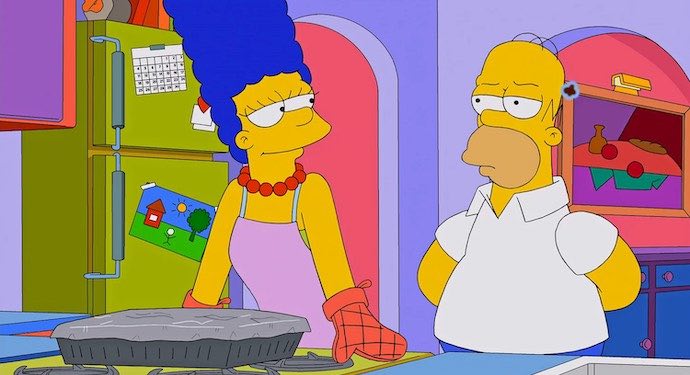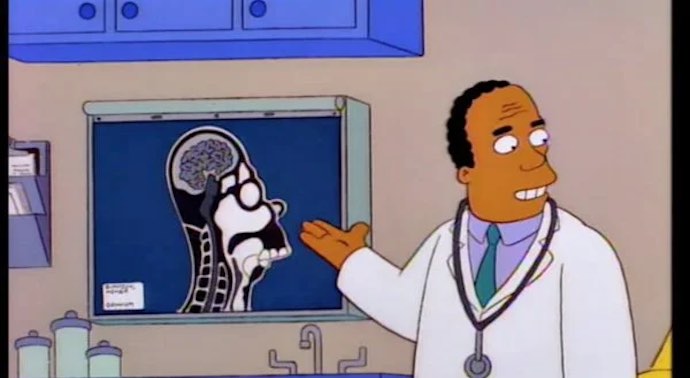Way back in 1989, a series of cartoon shorts from The Tracy Ullman Show were turned into a prime-time TV series. That series debuted as The Simpsons and changed the world.
The Simpsons connected with audiences in a way that few shows had ever done before, and certainly no animated show had collected as large of an adult following since The Looney Tunes, which had graced TV screens over 40 years prior.
As the years went by, The Simpsons continued to dominate prime-time television, even going so far as to have a profound effect on culture and society. The show and its characters have become part of the social lexicon in ways no other show has achieved.
And at the heart of The Simpsons is Homer Simpson, the family's patriarch. This particular character has had an immense impact on society: relationships, parenting, masculinity, and even the medical world. It's quite astounding, considering he's animated.
Let's dive a bit deeper into the character of Homer Simpson, who he is, and how he's influenced the world at large.
Homer Simpson and Parenting

Parenting was entirely different back in the early 90s. The idea of a traditional family unit was still the societal norm, the expected default around the world—and The Simpsons reflected that.
Especially in the earlier episodes, Homer was portrayed as a father who went to work and put the bread on the table for his family. But as the show went on, Homer has grown even more present for his children than in the earlier seasons.
Whenever Bart, Lisa, or Maggie need him, Homer is unwaveringly there for them. Though he still strangles Bart on occasion, Homer has demonstrated a drastic change as head of household: he's shown to be loving and caring towards his children's needs, giving them whatever he can to ensure that they are happy.
He spends time with Lisa even though it bores him. He often indulges Bart's ideas, and the pair have made a formidable team throughout the episodes. And his love of Maggie came through in one of the show's most heartfelt moments where it's revealed that every photo of Maggie is on Homer's desk at work to remind him why he does what he does.
Over the many years of The Simpsons, Homer's parenting style has definitely evolved—mainly for the better, and in ways that encourage an entire generation of viewers to listen to their children more.
Homer Simpson and Relationships

Homer Simpson is far from the ideal husband. He is—as Marge herself once said—"loud, crude, and piggish." But if one thing is true about Homer and Marge's relationship, it's that they truly love each other unconditionally.
Yes, it hasn't always been sunshine and sparkles. Their relationship has undergone heavy strain numerous times. But in the end, Homer always goes back to Marge.
Even when Homer was tempted by Mindy Simmons, who was depicted as Homer's perfect woman, he still went back to Marge. Not because he felt obligated to, but because he knew very well that nobody would ever love him more than she does.
Homer and Marge's relationship has changed over the seasons, but Homer has demonstrated to millions of viewers what it's really like to be in a long-lasting marriage. He compromises when he needs to. He's caring, gentle, and stands by Marge no matter what.
We, as the audience, have watched Homer and Marge go through many challenges in their marriage, and we've also watched them find ways to pull through even during the hardest of times.
Their willingness to work on their relationship and continue to find ways to love one another has positively affected all the people that have watched the series, in one form or another.
Homer Simpson and Masculinity

Homer Simpson is... a chunky fellow. Apart from a few episodes where he got into shape, he's always been an overweight loafer who loves to eat donuts and drink beer.
In a way, Homer represents a lot of men. He was described by Lionel Hutz as "the greatest hero in American history," yet he doesn't have Arnold Schwarzenegger's muscles or Harrison Ford's panache.
Homer is an oaf most of the time—an oaf who's deathly afraid of sock puppets. But Homer is perfectly comfortable with his body, and he often uses his fat to his advantage, like when he absorbs a punch and leaves his opponent stuck in it.
His physical appearance has filtered through society over the last few decades, to the point where the "dad bod" is now a socially acceptable physique for men in modern society.
Homer Simpson not only has a stunning wife, but he's also very in touch with his feminine side, proving to generations of young men that masculinity isn't about being the toughest guy around. It's about loving yourself and not subjecting yourself to unnecessary standards.
Over the years, Homer has positively affected how men see themselves, which is quite a legacy. Despite his figure, Homer has what most men want in a family—purely by being himself.
Homer Simpson and Medicine

Did you know Homer Simpson has had actual real-world medical findings named after him? Not just one, but two! And both have been dubbed the "Homer Simpson Effect."
The first Homer Simpson Effect was published by the American Academy of Neurology in 2006. In a five-year study of over 2,000 middle-aged men, researchers found that people with a higher BMI tend to score lower on cognitive tests.
The second Homer Simpson Effect was published by Nature Neuroscience in 2015. Researchers used fMRI scans and behavioral tests to show that recalling visual memories and experiences can cause us to forget similar memories and experiences.
"Every time I learn something new, it pushes some old stuff out of my brain."
Homer Simpson to Marge
Such is Homer Simpson's effect on culture—he's had two genuine medical discoveries named after him, proving that he's had a profound effect on modern society. More so than any other animated man!




